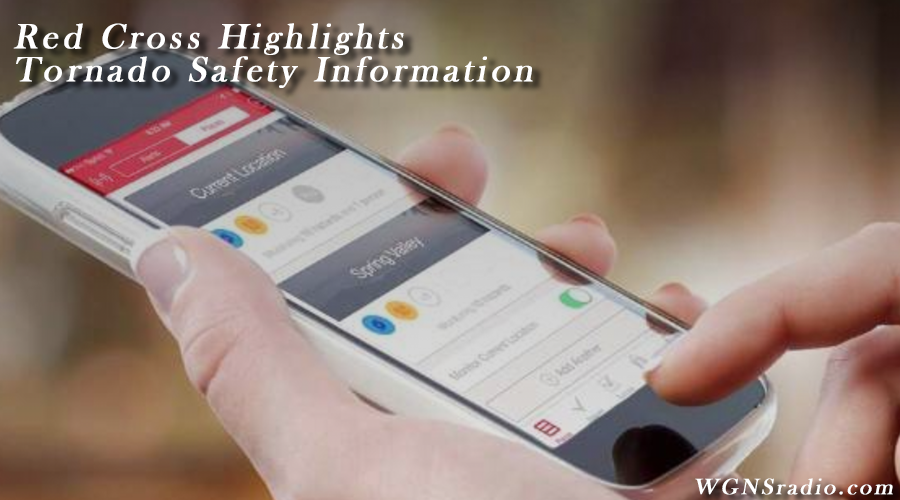As spring approaches and the days begin to warm, the threat of strong spring storms is very real across Tennessee. March marks the beginning of spring storm and tornado season. These storms can happen at any time of the year, but we usually see an increased threat during the spring.
Tornado Information:
Tornadoes can happen anywhere, at any time of day but are most likely to occur between 3:00 and 9:00 p.m.
The United States averages 1,253 tornadoes every year.
Most tornadoes occur east of the Rocky Mountains.
The area where we see the most tornadoes seems to be moving from the Plains states to the Southeast and Midwest, especially to states along the Mississippi River.
Given that a widespread severe weather event is expected this week beginning March 16 through March 18 across southern states, the American Red Cross of Tennessee Region has tips to keep your family safe during spring storm season:
KNOW YOUR COMMUNITY’S WARNING SYSTEM. There are different ways to notify people about tornadoes. Radio and Sirens are two ways to find out about serious storms. Sirens intended for outdoor warning purposes, can be heard in the area of MTSU when a tornado warning takes place on the university's campus. Furthermore, WGNS Radio broadcasts over regularly scheduled programming the minute a tornado is spotted in Rutherford County. WGNS also sends out texts, warning residents that a tornado has been spotted as soon as the news staff receives such a confirmation.
IDENTIFY A SAFE PLACE IN YOUR HOME where you can gather – a basement, storm cellar or interior room on the lowest floor with no windows. In a high rise, pick a hallway in the center of the building as you may not have enough time to get to the lowest floor.
SECURE ITEMS OUTSIDE that can be picked up by the wind. If you live in a mobile home, find a safe place in a nearby sturdy building. NO MOBILE HOME IS SAFE IN A TORNADO.
KNOW THE WARNINGS. A tornado watch means a tornado is possible. A tornado warning means a tornado has been sighted, on the ground, or indicated by weather radar. IMMEDIATELY GO TO YOUR SAFE PLACE.
WATCH FOR TORNADO DANGER SIGNS: dark, often greenish clouds, wall cloud, cloud of debris.
BRING YOUR ANIMALS INDOORS and maintain direct control of them.
IF YOU ARE OUTSIDE, look for the closest option to seek safe shelter in a basement, storm shelter or sturdy building.
IF YOU CAN’T WALK TO SHELTER, get into a vehicle, and try to drive to a safe shelter.
IF STRONG WINDS AND DEBRIS ARE OCCURRING, pull over and put your vehicle in park. Keep your seat belt on and engine running. Protect your head by leaning down below the windows, covering your head with your hands and a blanket or jacket.
STAY AWAY FROM BRIDGES AND HIGHWAY OVERPASSES.
AFTER A TORNADO:
Keep listening to EAS, NOAA Weather Radio, and local authorities for updated information.
If you are trapped, cover your mouth with a cloth or mask to avoid breathing dust. Try to send a text, bang on a pipe or wall, or use a whistle instead of shouting.
Stay clear of fallen power lines or broken utility lines. Do not enter damaged buildings until you are told that they are safe.
Save your phone calls for emergencies. Phone systems are often down or busy after a disaster. Use text messaging or social media to communicate with family and friends.
Be careful during clean-up. Wear thick-soled shoes, long pants, and work gloves.
“We want to make sure Tennesseans are Red Cross Ready to weather any storm,” said Joel Sullivan, regional executive director for the Tennessee Region. “There are simple steps you can take to prepare before a storm strikes. This includes making an emergency kit with enough supplies for three days of non-perishable food and water and having a First aid kit, with medications and medical items for everyone in the family.”
OTHER ITEMS TO INCLUDE IN AN EMERGENCY PREPAREDNESS KIT:
Flashlight and extra batteries
Battery-powered or hand crank radios on hand
Copies of important documents (proof of address, deed/lease to home, passports, birth certificates, insurance policies)
Extra cash
BE INFORMED. Know the risks where you live, work, learn and play. Information is key and can save a life. Learn first aid skills and take a CPR/AED class. A variety of online, in-classroom and blended (part online and part in the classroom) training courses are available at redcross.org/takeaclass.
DOWNLOAD RED CROSS APPS. People can download the Red Cross Emergency App and the First Aid App. Both apps are available to download for free in app stores or at redcross.org/apps.





